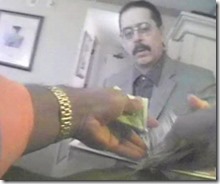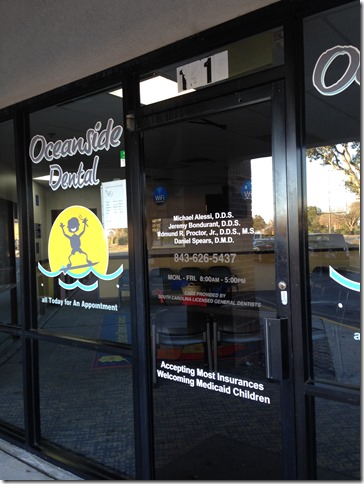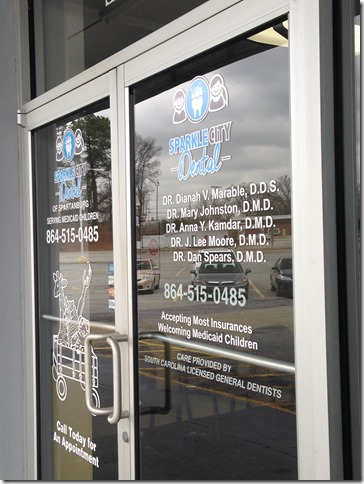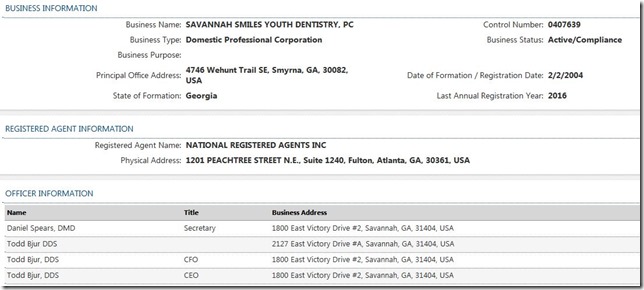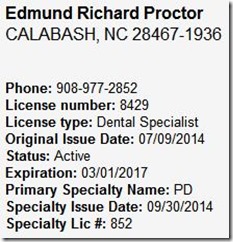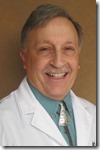
Dr. Michael W. Davis maintains a general dental practice in Santa Fe, NM. He serves as chairperson for Santa Fe District Dental Society Peer-Review. Dr. Davis also provides a fair amount of dental expert legal work for attorneys. He may be contacted via email:
MWDavisDDS@comcast.net

Dr. Recker began his career in general dentistry in Cincinnati, Ohio during which time he served as a member of the
Ohio State Dental Board. When the laws prohibiting dental advertising were overturned in the early 1980’s, he was charged by the Board to rewrite Ohio’s advertising laws. In the 1980’s he left the clinical practice of dentistry and began a legal career consisting solely of dental issues, dental board defense, and the First Amendment Right of dentists. Since that time, he has appeared before over 50% of the dental boards in the country representing dentists, and has litigated every case, in state or federal courts, involving dental advertising.
Dr. Recker is a Life Member of the
American Dental Association (ADA), the
American Association of Dental Boards (AADB), a Fellow of the
American College of Dentists (ACD), a Fellow of the
American College of Legal Medicine (ACLM) and a member of multiple state and local dental societies. He is licensed to practice dentistry in Ohio and Florida, and admitted to the Bars of Ohio, Kentucky and Florida, as well as multiple federal courts throughout the country, including the United States Supreme Court.
INTRODUCTION
Dr. Frank R. Recker was the lead attorney representing plaintiffs
American Society of Dentist Anesthesiologists (ASDA),
American Academy of Implant Dentistry (AAID),
American Academy of Oral Medicine (AAOM), and the
American Academy of Orofacial Pain (AAOP) in the recent case against the
Texas State Board of Dental Examiners (TSBDE) and
Texas Society of Oral and Maxillofacial Surgeons (TSMOFS). Federal District Judge Sam Sparks ruled in favor of plaintiffs, in US District Court for the Western District of Texas, Austin Division (case no. A-14-CA-191-SS). Plaintiffs have a Constitutional right of commercial free speech. Judge Sparks’ ruling of January 21, 2016 can be accessed at this link:
http://images.magnetmail.net/images/clients/AAID/attach/TEXAS_JAN_21_16.pdf
INTERVIEW
Dr. Davis: Dr. Recker, I want to thank you for taking the time and effort to discuss with our readers, the merits and potential implications of this landmark case. As a former attorney/dentist member for the Ohio State Dental Board and also a practicing dentist, I know you place the public interest in a paramount position. How does Judge Sparks’ ruling positively impact the public welfare? How will the public benefit?
Dr. Recker: The public benefits by having access to more truthful information about a dentist’s skill, knowledge and experience, which are reflected in certain credentials earned in various areas of dentistry. The Court recognized this, saw that the organizational plaintiffs were credible, bona fide and deemed worthy of holding themselves out as specialty organizations with the individual dentist/plaintiffs being entitled to hold themselves out as ‘specialists’ in their respective areas. Every practicing dentist understands that turf wars exist between various ADA recognized specialties. The regulation at issue protected ADA specialties, not the public.
You recall that the AAP came very close to changing its organizational name to include ‘Implant Dentistry.’ So you see an ADA recognized specialty nearly abandoning an underlying precept of the ADA specialty recognition process and attempting to falsely imply to the public that implant dentistry is an ADA recognized specialty, and a ‘subpart’ of the AAP. AAOMS also advertises as the ‘specialists’ in implant dentistry. These are misleading statements to the public, and made solely upon their respective opinions, and economics. There is no ADA specialty in implant dentistry, and implying so doesn’t change that reality and only risks confusing consumers.
There simply is no ADA recognized specialty in Implant Dentistry, Oral Facial Pain, Oral Medicine, and Dental Anesthesia. The public would clearly benefit if they knew that these specialties exist, but not recognized by the ADA.

As dentists who have been members of the ADA for many years, when we think ‘specialty’ we are conditioned to only think of the ADA. We don’t consider the fact that the ADA is a political body and its ‘Specialty’ decisions are ripe with considerations that should be excluded, such as competition, economic effects, and dental politics. The ADA specialty recognition process is effectively ‘dead.’ No other group will seek specialty recognition and be subject to such a process. There was a time, perhaps, that it made sense. But much has changed since the 1950’s, and the ADA House of Delegates made that painfully clear when it considered Anesthesia as a recognized specialty in October 2012.
Moreover, many potential ‘specialty’ areas of dentistry could never comport with the ADA requirements for ADA recognition. These areas include special needs dentistry, geriatric dentistry, cosmetic dentistry, forensic dentistry, and other focused areas that consist of real ‘specialists’ in those segments. Indeed, even a Board Certified (ABGD) general dentist might deserve the title (albeit perhaps a politically incorrect moniker) ‘specialist in general dentistry.’
Dr. Davis: Numbers of doctors have expressed their concerns over this federal court decision. Some believe state dental boards have lost an ability to effectively regulate the practice of dentistry. Others fear any dentist who takes a weekend educational course at a Holiday Inn, may then be able to advertise a specialty status. Thus, dental specialty standing will have little to no meaning for the public. Can you address some of these concerns?
Dr. Recker: First, there is no evidence that ‘dental specialty standing’ means anything to the public. When taking depositions of survey ‘experts,’ they give their own opinion (not having a clue about what an ‘ADA recognized specialty’ is or how it comes to be) that a ‘specialist’ in any area of endeavor is someone who has acquired additional education, training and experience in a specific topic or area. That is indeed a very true answer. When Courts declare the sole reliance on an ADA specialty for advertising purposes to be unconstitutional, it will not specify what a constitutional option might be. It cannot legislate a ‘fix.’ But based on the cases over the past 15 years, a ‘bogus’ credential or certification could not meet judicial opinions as to ‘bona fide’ and ‘legitimate.’
I try to tell my American Board of Dental Specialties (AADB) colleagues that a board ALWAYS has the right and the power to determine such a bogus credential as inherently misleading, because it has no underlying rigorous, objectively verifiable criteria upon which to deem itself a specialty credential. While a dental board may not be able to define ‘pornography,’ it will know it when it sees it, i.e., ‘specialist in cosmetic dentistry’ based upon a week long course provided by a company that produces veneers, etc.
Dr. Davis: Some dentists have expressed their frustrations over what may viewed as unfair insider influence, at American Dental Association (ADA) House of Delegates (HoD) meetings. Organizations petitioning for ADA specialty standing and fully meeting the standards of specialty status (via the ADA’s Commission on Dental Accreditation or CODA) have met with roadblocks. In the case of the specialty of dental anesthesiology, insider groups have stymied attempts at specialty standing for over three decades. Obviously, your clients must feel exasperated by entities which place protection of economic turf foremost. The recently formed American Board of Dental Specialties (ABDS) seems a response to this obstructionism.
http://dentalspecialties.org/about-the-abds/
Dr. Recker: I do see this point in the evolution of dental specialties as one that clearly offers the opportunity for advancement in training, education and experience in all non-ADA recognized specialties and for developing a fair and objective alternative for determining dental specialties. The ABDS (American Board of Dental Specialties) was formed to model the ABMS medical model. It is intended to be a joint cooperative between an independent entity (ABDS) and, hopefully, organized dentistry (ADA). The decisions of the ABDS relative to specialties will not consider competition, political issues, or turf wars. It will not be a decision made by a group of competitors who could be economically or politically affected by their own decisions. While such a statement is not intended to be critical of the ADA specialty recognition process, it is a simple reality.
While the four organizational clients in the Texas litigation have been critical of the ADA process, they simply came to realize that the ADA process is the ADA, trade association, process. If you don’t like the game, don’t play it. From a constitutional standpoint, the ADA can do whatever it wants relative to being deemed an ‘ADA recognized specialty.’ But when it comes to simultaneously deciding (by state adoption of only ADA specialties in advertising) the commercial free speech rights of dentists who may not even be members of the ADA, the First Amendment will intervene.
Dr. Davis: In my reading of Judge Sparks’ ruling, and in particular the deposition of the TSBDE executive director, I was taken aback by an unwillingness or inability of state regulators to place the public interest to the fore. Defendants didn’t seem to make a case beyond a blind obedience to ADA rules and protocol. Please comment, Dr. Recker.
Dr. Recker: The State Board of Texas couldn’t produce even one consumer complaint about dental advertising, of any kind. However, they did produce multiple complaints by dentists against other dentists! The Board did not concern itself with what might actually benefit the public, or assist the public in making informed choices. Just look at the dental anesthesia observation made by the Court.
A dentist/anesthesiologist in Texas was allowed to announce a practice concentration or limitation to dental anesthesia, but only if ‘General Dentist’ was included in the ad. That nonsensical requirement is hardly calculated to prevent the public from being ‘mislead,’ as opposed to protecting segments of the dental profession who want to monopolize the provision of general anesthesia services with the ‘help’ of the Board of Dentistry. Perhaps state boards will become more sophisticated and objective as a result of the
FTC v NC Board decision. But I think it will take time for the average dentist to absorb developments in the law, and how their traditional thinking needs to evolve with the law.
Clearly, as the depositions indicated, members of the Board don’t know the details of the ADA specialty process. And interest into how that process works should be paramount to any dental board member before they limit the advertising by licensees to only ‘ADA recognized specialties.’ If they simply wanted to gain an insight into that process, they need only read the transcript of the 2012 HOD discussion of anesthesia’s application for specialty recognition. And in this age of obvious FTC scrutiny, I am amazed that there hasn’t been an antitrust challenge yet. But my concern is simply the First Amendment, and it provides sufficient protection to ‘unlock’ a state’s total deference to the ADA as the exclusive means to announce
Dr. Davis: I realize this case was adjudicated in federal district court in Texas. Other states like Florida and California have had similar judgements. Do you believe there will be protracted legal battles in numbers of future courts, or the will the ADA House of Delegates step-up and take more reasonable measures towards specialty acknowledgements?
Dr. Recker: I am very hopeful that the ADA will acquiesce to the realities of the legal arena. That could result in ADA participation in the ABDS process. The ABDS is also hopeful that the ADA recognized specialties apply for ABDS recognition. A court would not challenge a state law that allowed specialists, recognized as such by the ADA or the ABDS, to advertise as specialists. Only when a law limits or prohibits commercial free speech will it be challenged. I would hope that protracted legal battles could be avoided by constructive dialog among the interested stakeholders in this issue. Ultimately, the ADA House of Delegates will need to decide if they want to work with the ABDS, or continue to resist any designation of specialty that is not their own. If states decide to continue to adhere to only ADA specialties, more states will pay more money in defending such a position. As we know, the States of California and Florida paid almost two million dollars collectively in their unsuccessful attempts to limit specialty recognition to only ADA determinations.
CONCLUSION
Dr. Davis: Dr. Recker, this has been a very detailed and highly insightful discussion. I realize legal issues in dentistry may seem overly complicated and “in the weeds”. However, it’s positive to see these matters fully open in the light of day. We all benefit from transparency in the process. I know numbers of readers may wish to contact you on matters relating to dental law.
Dr. Recker: I feel strongly that any dentist wishing to learn about these issues should carefully read several relevant court decisions that explain the legal rationale underlying past First Amendment challenges about advertising credentials, and specialties. And, as a Life Member of the ADA, I completely understand a dentist’s ‘mother and apple pie’ allegiance to the ADA. But I also feel that diverting the specialty process to an independent outside entity will enhance, and prolong, ‘mother’s’ quality of life!
To that end, I would be happy to communicate with any person or group about these issues, via email or phone, time permitting.
Recker@ddslaw.com; 800-224-3529.
Related:
Supreme Court of the United States Opinion -
North Carolina State Board of Dental Examiners v Federal Trade Commission.





